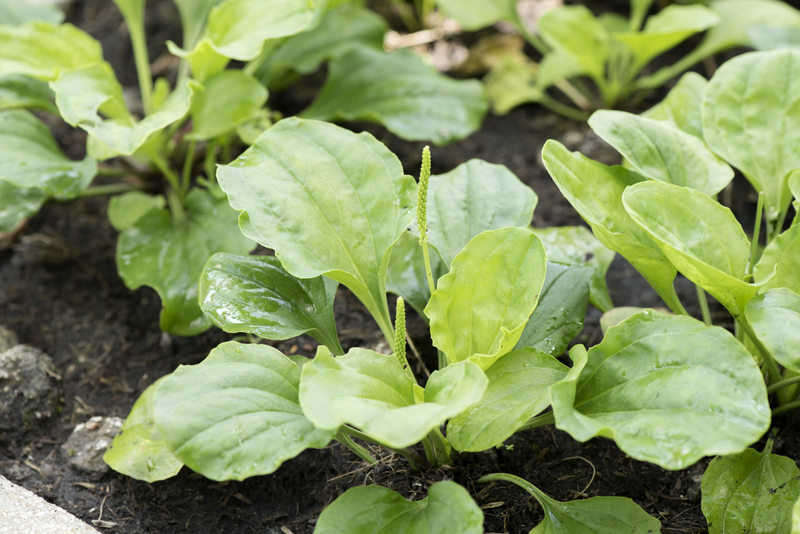Effective Methods to Rodent-Proof Your Garden
Posted on 17/06/2025
Gardening can be an incredibly rewarding hobby, providing both aesthetic pleasure and a bounty of fresh produce. However, it can also attract some unwelcome visitors, such as rodents. Rats, mice, and other rodents can cause significant damage by gnawing on plants, stealing seeds, and contaminating the soil with their droppings. Luckily, there are numerous methods to rodent-proof your garden. This article will walk you through effective strategies to keep these pesky intruders at bay.
Understand the Enemy: Common Garden Rodents
Before you can effectively rodent-proof your garden, it's essential to understand which rodents are frequent visitors. The most common types include:
- Rats: Both Norway rats and roof rats are notorious for invading gardens. Norway rats burrow and can damage roots and bulbs, while roof rats tend to climb and are often found in trees or attics.
- House Mice: These small rodents can be incredibly destructive, eating seeds and seedlings and gnawing on plant matter.
- Voles: Often mistaken for mice, voles primarily damage root vegetables and bulbs. They create intricate burrow systems, leading to plant destabilization.

Identify Signs of Rodent Activity
Determining whether you have a rodent problem is the first step toward solving it. Look for signs such as:
- Droppings: Rodent droppings can usually be found near food sources.
- Gnaw Marks: Fresh gnaw marks on plants or wooden structures are clear indicators.
- Burrows: Small holes or tunnel systems indicate burrowing rodents like voles and Norway rats.
- Footprints: In dusty or muddy areas, you might find tiny footprints.
Physical Barriers as Deterrents
One of the most effective ways to rodent-proof your garden is by installing physical barriers. Here are some barriers you can use:
- Wire Mesh Fences: Use hardware cloth with a mesh size of 1/4 inch or less to create a barrier around your garden beds. Ensure the fence is buried at least 12 inches underground to prevent burrowing.
- Raised Beds: Elevated garden beds not only protect plants from various soil-borne diseases but also deter rodents. Lining the bottom of the raised beds with hardware cloth adds an extra layer of security.
- Row Covers: Lightweight row covers protect young plants from rodents without interfering with sunlight or water.
Natural Predators and Domestic Pets
Encouraging natural predators can balance the ecosystem and keep rodent populations under control. Consider these options:
- Owls: Installing owl boxes can attract owls, natural predators of rodents.
- Snakes: While not everyone appreciates snakes, some non-venomous species are effective at controlling rodents.
- Cats and Dogs: Domestic pets like cats and certain breeds of dogs (e.g., terriers) can be very effective in deterring rodents. Ensure pets are safe and won't harm the garden themselves.
Natural and Chemical Repellents
Repellents can create an unfriendly environment for rodents. Here are some options:
- Essential Oils: Oils like peppermint, eucalyptus, and citronella are natural repellents. Soak cotton balls in these oils and place them around the garden.
- Predator Urine: Products replicating the scent of predators like foxes can keep rodents at bay.
- Chemical Repellents: Various commercial repellents are available, though they may need frequent reapplication and could affect non-target wildlife.
Proper Garden Maintenance
Good garden hygiene is crucial in keeping rodents away. Here are some best practices:
- Remove Food Sources: Harvest ripe fruits and vegetables promptly. Avoid leaving fallen fruits and vegetables on the ground.
- Compost Wisely: Use rodent-proof compost bins and avoid composting meat and dairy products that attract rodents.
- Clear Debris: Piles of leaves, wood, and other debris provide excellent hiding spots for rodents. Keep your garden tidy.

Non-Lethal Traps
If you're looking for humane ways to control rodent populations, non-lethal traps are a good option:
- Live-Capture Traps: These traps catch rodents without killing them. After capture, release the rodents far from your property.
- Bucket Traps: DIY bucket traps involving tilting boards or seesaws can be effective and humane.
Final Thoughts
Rodent-proofing your garden requires a multi-faceted approach. By understanding the types of rodents you're dealing with, employing physical barriers, encouraging natural predators, using repellents, maintaining garden hygiene, and setting non-lethal traps, you can create a garden that is both productive and rodent-free. Implement these strategies and enjoy the satisfaction of a thriving, healthy garden.
Remember, each garden is unique, and you might need to adapt these methods to best suit your specific needs. Combining several of these strategies will yield the best results in keeping rodents at bay and ensuring your garden remains a flourishing haven of plants and flowers.
Latest Posts
Inspiring Ways to Refresh Your Garden This Autumn Season
A Step by Step Guide to Keeping Artificial Grass Fresh and Spotless
Creative Planting Ideas to Design a Serene Zen Oasis







